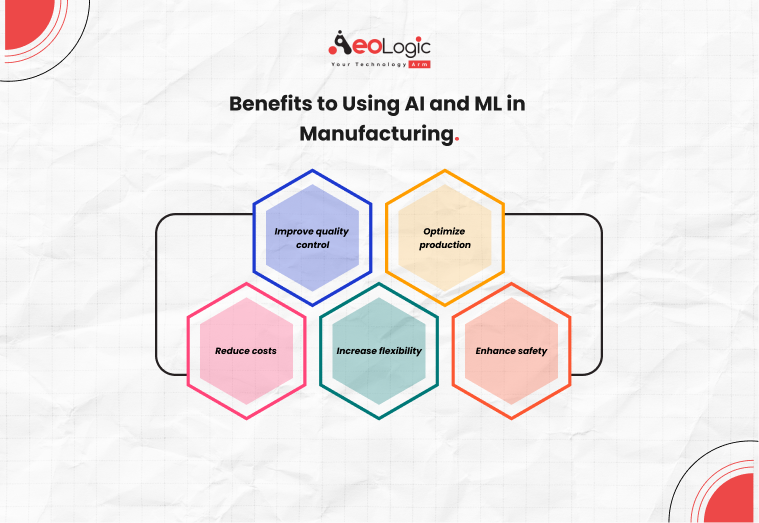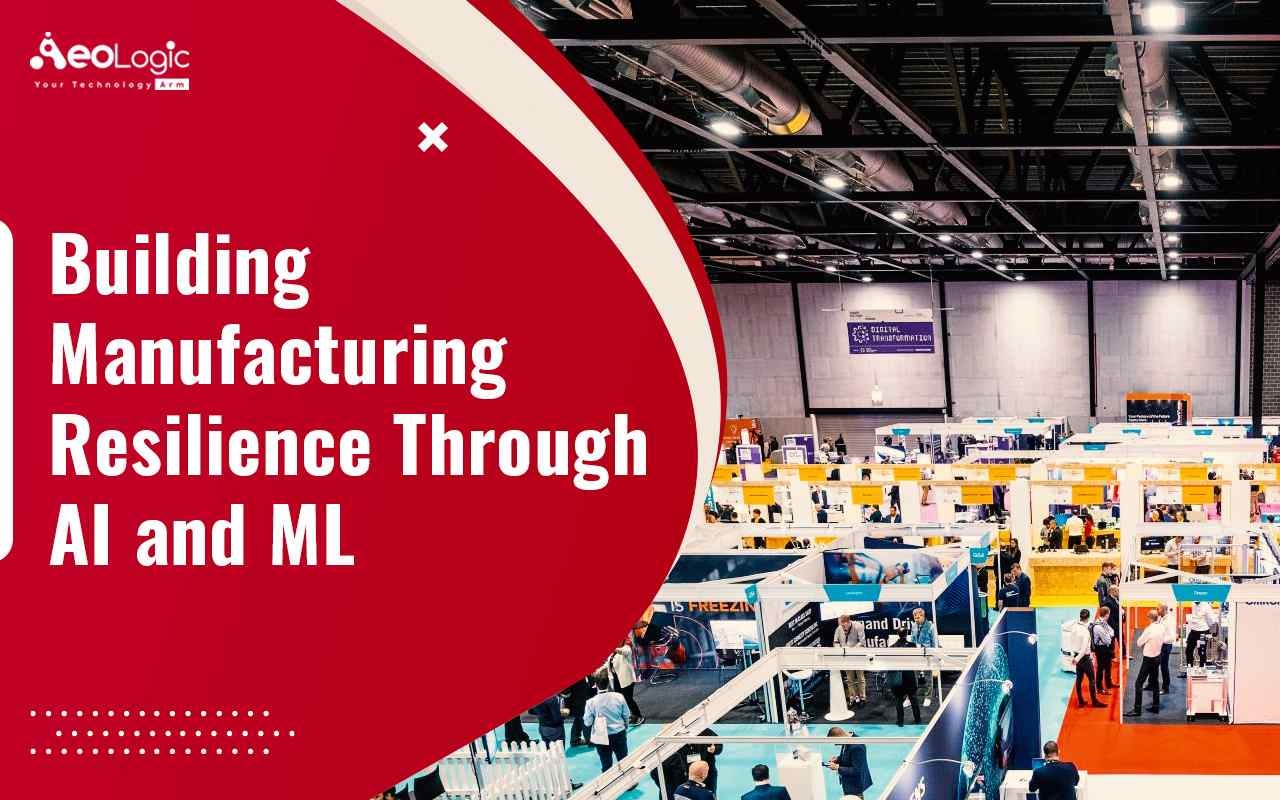The ever-changing demands of the modern manufacturing industry have made it difficult for organizations to keep up. In this blog post, we discuss how AI and machine learning are helping manufacturers increase their resilience by providing opportunities to innovate and explore new ways of working.
A recent survey found that almost 80% of manufacturers have no idea how much they lose to downtime and human error. The blog offers a glimpse into the future where robots take care of mundane tasks and humans are in charge of the creative ones. Find out how in this blog.
Lets start!
What is Manufacturing Resilience?
Manufacturing resilience is the ability to manufacture companies to withstand and recover from disruptions. It includes the ability to identify and manage risks, as well as the ability to adapt and respond to changing conditions.
There are many factors that contribute to manufacturing resilience, including organizational culture, business continuity planning, and supply chain management. However, one of the most important factors is the use of data and analytics.
Data and analytics can help manufacturing companies identify risks, optimize processes, and make better decisions. The use of artificial intelligence (AI) and machine learning (ML) can take this even further. AI and ML can be used to predict disruptions, identify patterns, and suggest solutions.
Building manufacturing resilience through AI and ML requires a commitment to data-driven decision-making. Companies must invest in data collection, storage, and analysis. They must also create a culture that values data and analytics. By doing so, they will be better prepared to weather any storm.
Also Read: Why Is CRM Software a Game-changer When It Comes to Delivering Better Customer Experiences?
Role of AI and ML in Manufacturing Resilience
The role of AI and ML in manufacturing resilience is to provide the necessary support to the manufacturing system, thereby improving its ability to adapt to external changes.
Manufacturing resilience currently relies heavily on human interaction and judgment, which means that it can be difficult to predict how a change in one area will impact another. This makes predicting the effects of changes difficult for human operators, but also for machines themselves.
AI and ML can help these machines see and react to changes in their environments more effectively, allowing them to make more informed decisions about how best to respond. This can reduce risk and improve efficiency, which ultimately helps companies improve their bottom line performance.
Benefits of Building Manufacturing Resilience Through AI and ML

Manufacturing is a critical sector of the economy and one that is increasingly being disrupted by new technologies. Artificial intelligence (AI) and machine learning (ML) are two of the most promising technologies for improving manufacturing productivity and competitiveness.
There are many benefits to using AI and ML in manufacturing, including the ability to:
- Improve quality control: AI and ML can be used to improve quality control in manufacturing by identifying defects and anomalies in real-time. This can help reduce scrap rates and improve yield.
- Optimize production: AI and ML can be used to optimize production processes by reducing cycle times and increasing throughput. This can help improve efficiency and productivity.
- Reduce costs: AI and ML can be used to reduce costs by automating tasks such as material handling and quality control. This can help free up resources for other activities.
- Increase flexibility: AI and ML can be used to increase flexibility in manufacturing by enabling the customization of products and processes. This can help meet customer needs more effectively.
- Enhance safety: AI and ML can be used to enhance safety in manufacturing by reducing the risk of human error. This can help create a more safe and secure workplace.
Also Read: Why a Culture of Innovation Is Required in an Era of Digital Transformation
The Future of Resilient Manufacturing
The answer is: that AI and ML are changing manufacturing as we know it. They’re not just changing how companies make and sell things, but also how they operate. In fact, many experts believe that the two will eventually take over all human labor, leaving only robots in their wake.
Manufacturing is a notoriously difficult industry to operate in. It’s not just a matter of keeping the machines running, it’s also about improving efficiency and reducing costs. That’s where AI and Machine Learning come in—they can help you address these challenges.
AI can be used to automate processes, which saves time for workers and helps them focus on other tasks that are more important to the company. AI is also being used to predict production needs, so you’re able to make sure you’re always ready for when demand spikes or changes. Machine Learning is being used to create models that predict how much inventory or material will be needed at different points in time, so you can make sure your supply chain is always up-to-date.
AI and ML are already making an impact on manufacturing operations around the world—and with their continued growth, they have the potential to help manufacturers become more resilient than ever before!
Challenges Inherent in Building Resilience Through AI and ML
It is hard to believe, but manufacturing is still an area of business that is not fully automated. A lot of people still work in factories, and they do so because they enjoy the physical aspects of it. They love the smell of sawdust, the feel of metal on their hands, and the sound of machines humming.
That’s why we need to make sure that we have a plan to keep our manufacturing workforce strong and healthy as technology continues to advance. We know that AI and ML will be critical for making this happen, but we also need practical ways for people to use these technologies for their own benefit instead of just feeling like they’re being replaced by robots.
We believe there are three ways to make sure we stay ahead of this challenge:
1) Provide training opportunities so that workers can learn how to use artificial intelligence in their daily jobs without feeling overwhelmed or bored.
2) Create new career paths through which people can apply their knowledge with artificial intelligence without having to start from scratch on a completely new field like software engineering or data science (which are both necessary skills).
3) Build community support around these new opportunities so employers will see value in hiring more people with AI and ML skills than they currently do now.
Also Read: Why Is CRM Software a Game-changer When It Comes to Delivering Better Customer Experiences?
Conclusion
The manufacturers that will survive and thrive in the future are those that embrace new technologies like artificial intelligence (AI) and machine learning (ML). These technologies can help manufacturers become more resilient by increasing efficiency, reducing waste, and improving quality control. So if you’re a manufacturer, don’t wait to adopt AI and ML — start using them today to build a more resilient business for tomorrow. We are here to help you!
Feel free to schedule a free 60-minute consultation with one of our experts. We’ll talk about the opportunities and address any concerns you may have. Our consultants will suggest solutions and outline how they can be implemented. Let’s talk!
Aeologic Technologies is a great place to start!

I’m Deepika Pandey, an SEO strategist and content writer with 6+ years of experience. I create SEO-friendly content that drives traffic and engages readers. I combine data insights with creativity to help businesses grow their online presence effectively.







